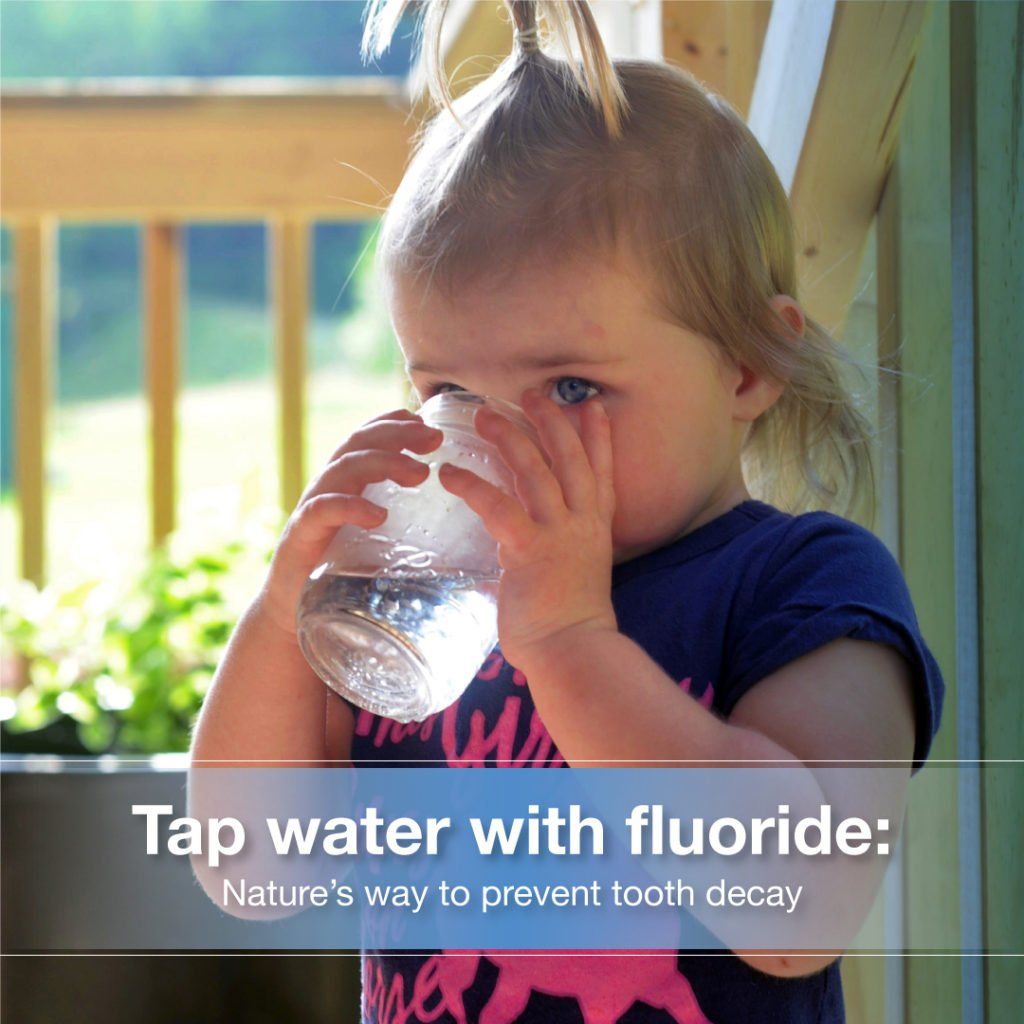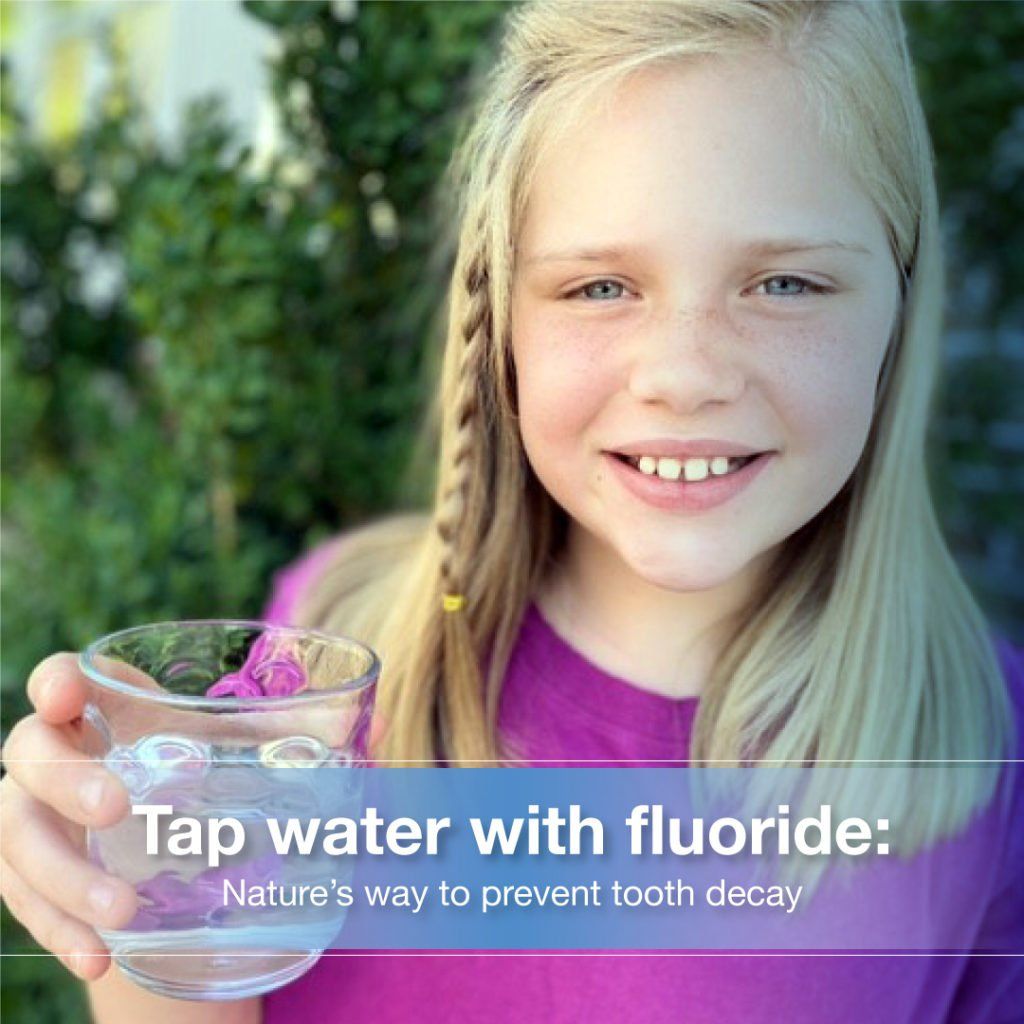Community Water Fluoridation
Tooth Decay is a Problem!
Oral health is integral to general health. Although preventable, tooth decay is a chronic disease affecting all age groups. In fact, it is the most common chronic disease of childhood. The burden of disease is far worse for those who have limited access to prevention and treatment services. Left untreated, tooth decay can cause pain, tooth loss, and even death. Among children, untreated decay has been associated with difficulty in eating, sleeping, learning and proper nutrition. Among adults, untreated decay and tooth loss can also have negative effects on an individual’s self-esteem and employability.



Community Water Fluoridation Prevents Tooth Decay
Fluoride in community drinking water, adjusted to a concentration of 0.7 parts per million, continues to be a safe, inexpensive and extremely effective method of preventing tooth decay.
- Community water fluoridation benefits everyone in the community, regardless of age and socioeconomic status.
- Fluoridation provides protection against tooth decay in populations with limited access to prevention services.
- For every dollar spent on community water fluoridation, up to $38 is saved in dental treatment cost.
What is West Virginia doing to meet the goals?
West Virginia has: instituted an oral health surveillance system to guide the planning, implementation, and evaluation of programs to prevent and control disease, implemented a standardized education curriculum, promoted inter-professional training with dental non-dental providers on appropriate fluoride supplement programs, maintained resources on well-water testing, recognized water systems maintaining optimal levels of fluoride, and utilized fluoride data from water systems.
The US Surgeon General endorses community water fluoridation being as “the most practical, cost-effective, equitable, and safe measures communities can take to prevent tooth decay and improve oral health”.
